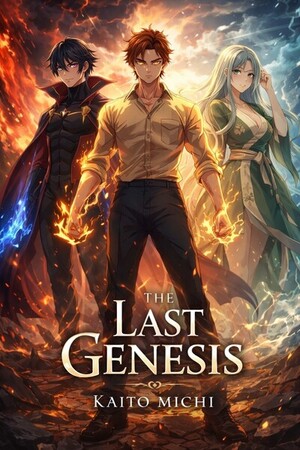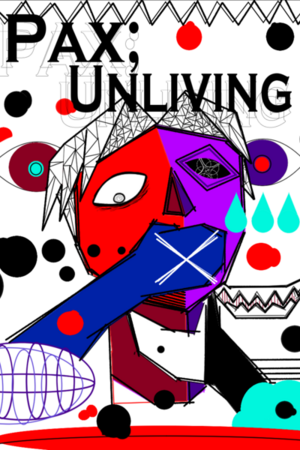Chapter 19:
The Throne (王座の沈黙 / Ōza no Chinmoku)
The Last Genesis
The runner’s words hung in the air like a blade unsheathed, and Rei rose from his knees with the slow certainty of a man who had already died once.
Hajime’s gold Seiki steadied him, Izumi’s vines retracted with a whisper of thorns, and the convoy platforms descended from the sky like seraphim wings forged of crystal and steel.
They boarded in silence, the seraphim beasts pulling them above Elyra Vale’s meadows, and as the slums of Solarii’s undercity came into view, children pressed against crystal railings, throwing wilted flowers that caught the wind and fluttered upward like dying birds.
They chanted “Eclipse Savior” in voices raw from hunger, while mothers held up infants so they could see the mismatched eyes of the boy who had killed a king.
Hajime walked beside Rei, Seiki flickering at his fingertips, and Izumi’s vines curled protectively around the rail, thorns glinting like accusations.
Rei said nothing, but the flowers stuck to his boots like blood that refused to dry.
He was seven when the mantra began.
“Slay evildoers.”
They drilled it into him before breakfast, after lunch, between missions, until the words replaced his heartbeat.
The arena had been his first blood, two hundred forty-nine small bodies cooling in a perfect circle, and the Council had clapped while Mirae’s eyes stared up from the dust, but the Order called that training, not murder.
His first sanctioned kill came at eight, a Thorned Pact scout camp on the border where soldiers laughed over stolen grain. Rei moved through the tents like smoke, blade silent, and when the captain begged, Rei listed the villages that had starved while the man grew fat, the blade went through his throat without hesitation. Blood soaked the earth while the lower-city orphans watched from alley shadows, eyes wide with something between fear and worship.
The captain’s eyes had Mirae’s pleading stare for one heartbeat before they rolled white. Rei wiped the blade on the man’s cloak and walked away without looking back.
At ten, he executed a corrupt Celestine captain who had sold forty-seven failures to Chainbound Labs, children marked impure before the culls. The man’s blood soaked Rei’s uniform while the captain’s own guards turned away. The next morning, the lower city painted mismatched eyes on every wall.
The captain had laughed too, right up until Rei’s blade found his tongue and pinned it to the roof of his mouth. The gurgle that followed sounded otherworldly.
The failures had been small, some no older than five, and Rei carried their names in his head like stones he could never drop.
By twelve, he stood in a village square where bodies hung from crystal trees. He cut them down one by one, and when the local lord protested, Rei’s hands closed around the man’s neck, igniting him in blue flames, like kindling. The villagers afterward left offerings of bread and stolen fruit at the base of the murals they made of him.
The lord’s wife screamed, clawing at Rei’s arms. He let her, because her nails drew blood, and pain was the only thing that felt real anymore.
The bodies were those of farmers, mothers, and even some children. Rei buried them in unmarked graves while the lower city began to whisper that a God walked among them.
He was thirteen when the summons came from King Sorahiko of the Celestine Order.
The parchment was sealed with gold, delivered by a page who trembled so violently the wax cracked.
Rei walked the final skybridge alone, boots echoing on crystal that reflected his split gaze, and courtiers parted like water before a blade.
The throne room opened before him, marble and gold and seraphim wings carved into every surface, and Sorahiko lounged on high stone, belly spilling over silk, rings flashing as he gestured for silence.
"Rei Kurayami, you have been outstanding on the battlefield. Unrivaled in every way. We hereby grant you the title of Commander of the Celestine Order’s military."
Rei met his eyes with a gaze that could melt diamonds, and listed the dead: starving villages, tournament graves, children who never got a blanket, and Mirae.
Sorahiko laughed, a sound that started low and grew until it shook the chandeliers, until the hall itself seemed to vibrate with mockery.
The laugh climbed higher, wilder, until Rei was behind the throne, hands closing around royal flesh, and the neck snapped with a sound like dry wood under a boot.
The laugh died in a wet gurgle.
Marble dust snowed onto silk.
No one moved. No one dared.
Guards rushed forward, but the new regent—Sorahiko’s son—raised a hand and they froze.
“Let the body hang,” he said, voice soft as a blade sliding from sheath. “Rei, you will retain the position of Commander and keep the Celestine Order protected. You have free rein to go as you please. It's not like I could control you anyway.”
They dragged Sorahiko’s corpse through the halls, silk trailing blood, and nailed it to the left wing of Solarii’s gates before sunset.
The lower city watched in silence.
The years that followed were freelance judgment.
He hunted Grigori across shattered sky-islands, cut through Thorned Pact legions in border wars, and every kill carried Mirae’s eyes.
At fourteen, he trained with the three who had survived the circle: Hayate, whose left arm still carried the scar where Michael’s fire had burned flesh to bone to keep him standing, Raiden, whose horn carried Gabriel’s truth, Kazuki, whose shield bound Raphael’s chains, and they spoke little, for words were weakness in the Order.
The lower city grew bolder, painting his eyes on every wall, leaving offerings at the base, calling him the Eclipse because he brought darkness to the light.
He accepted no titles, no payment, only the mantra that had replaced his soul.
The convoy finally reached Solarii at dusk.
Rei said nothing.
Hajime’s gold Seiki flared, bright enough to cast shadows.
The light slid across Rei’s face, carving him in gold and blue.
He didn’t bow to it; he just kept walking, another ghost returning to the city that taught him how to kill gods.
Solarii’s towers burned in the sunset glow, and he felt nothing—no triumph, no guilt, only the echo of a child’s voice that once called his name through blood and dust.
The title they gave him, Commander, felt smaller than the silence that followed every life he took.
If this was what salvation looked like, he would rather stay damned.




Please sign in to leave a comment.